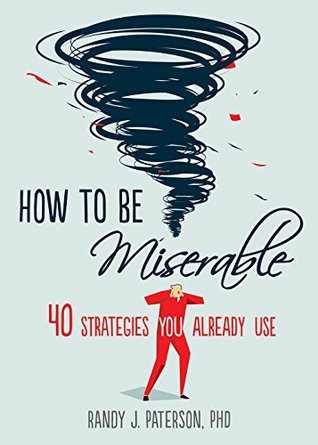More on this book
Community
Kindle Notes & Highlights
Read between
March 27 - April 9, 2022
People often wonder how the very fortunate can ever be miserable. They have wealth, health, partners, family, and friends. What’s not to like? As often as not, this strategy is key to their feelings. The higher the rollercoaster goes, the longer the coming drop can be. The better your life is, the more miserable you can make yourself by the contemplation of losing it all.
Cheerful, unworried people (those whose mental state resembles that of a golden retriever) tend to split their expectations in two: a minimum level of performance about which they would feel content an aspirational level, which they may not seriously expect to reach and to which they do not feel extremely attached They reveal these twin achievement lines when they talk about their expectations. “I’m just hoping not to fall out of the boat and drown. But it would be fun to find out I’m great at this.” “It would be nice to ace this exam, but I’ll be happy just to pass it.”
What would you be doing if your life were important? If you were living your real life, what would that look like? What would you do if you took your life seriously? What would you do if you had only one more year to live?
What you decide to do depends mainly on which emotion you use as your guide: temptation beforehand, enjoyment during, or satisfaction afterward. If misery is your goal, the answer is simple. Follow your gut. Base your decision on the temptation that you feel ahead of time.
Most things that will elevate your mood bring relatively little anticipatory desire: exercise, eating healthy food, getting to bed on time, returning friends’ messages, saving for retirement, doing your taxes. They feel either a bit flat or outright aversive. If you guide your behavior by this anticipatory feeling, you will put off almost anything that might improve your outlook.


